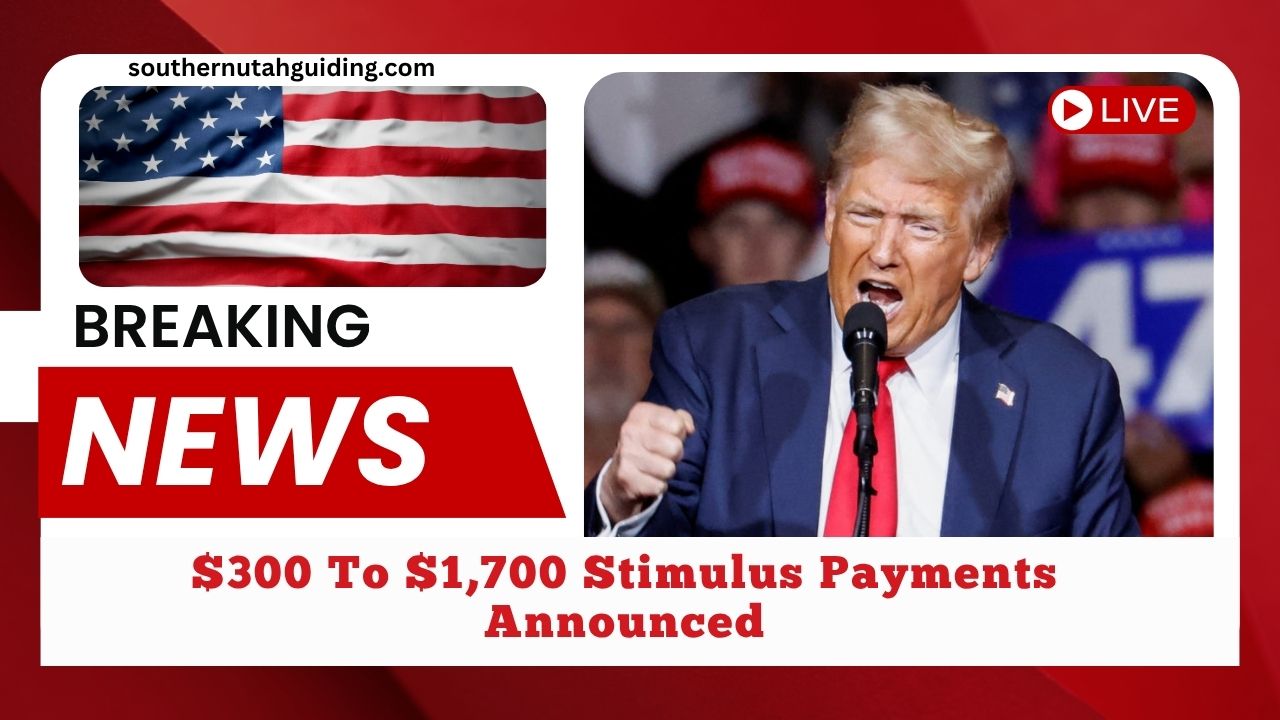As the cost of living continues to rise, new stimulus checks ranging from $300 to $1,700 are being rolled out across the United States. These payments are designed to provide financial relief to millions of Americans still recovering from economic challenges caused by inflation, housing costs, and food price hikes.
Let’s dive into the latest update on who qualifies, how much you may receive, and when to expect your payment.
What Are the $300 to $1,700 Stimulus Checks?
These stimulus checks are part of a joint initiative between the federal government and state governments to support low and moderate-income households.
The checks are not universal—eligibility depends on several factors including income, tax filings, and participation in federal benefits like Social Security, SSI, and VA programs.
Some states are utilizing budget surpluses to fund these checks, while others are using federal economic support funds.
Eligibility Criteria
To qualify for the upcoming stimulus payments, recipients must meet a combination of federal and state-specific requirements:
- Filed taxes in or after 2018
- Receive Social Security, SSI, or VA benefits
- Eligible for the Earned Income Tax Credit (EITC)
- Reside in a participating state
- Meet low to moderate-income thresholds
Your state’s guidelines will ultimately determine your final eligibility and payment amount.
Stimulus Check Payment Breakdown
Below is a quick overview of what you need to know about the new stimulus rollout:
| Category | Details |
|---|---|
| Payment Amount | $300 – $1,700 |
| Eligibility | Low-income earners, EITC recipients, Social Security/SSI/VA beneficiaries |
| Funding Source | Federal and State Government Programs |
| Delivery Method | Direct deposit, mailed check, or prepaid debit card |
| Start Date | Rolling out from Summer to Fall 2025 |
| Payment Type | Flat-rate or income-dependent |
How Much Will You Receive?
Depending on your income, household size, and state, the stimulus amount may vary:
- Flat Payments: Some states offer a fixed payment, such as $300 or $500, to all eligible recipients.
- Scaled Payments: Other states use a tiered approach, providing up to $1,700 for families with multiple dependents or low-income thresholds.
Payment Dates & Distribution
While exact payment dates vary by state, many are already issuing payments or planning distributions by Fall 2025.
To ensure faster delivery:
- File your taxes promptly.
- Opt for direct deposit.
- Update your contact info with IRS or your state revenue agency.
- Watch your mail if you’re expecting a paper check or prepaid card.
Beware of Scams
Scammers often try to take advantage of stimulus announcements. Protect yourself:
- Never share personal or banking information via unsolicited calls or messages.
- Government agencies will never ask for payment to release stimulus funds.
- Use only official government websites to check your payment status.
The rollout of new stimulus checks between $300 and $1,700 comes at a crucial time for many Americans. Whether you’re a Social Security recipient, a low-income earner, or eligible through state programs, these payments can offer valuable support.
Make sure to check your state’s eligibility requirements, ensure your details are current, and monitor official sources for updates.
FAQs
When will I receive my stimulus payment?
Payment timelines depend on your state. Some started in summer 2025, while others will pay out by fall.
Do Social Security or EITC recipients qualify?
Yes, if your state includes these benefits in their criteria, you may be eligible.
How much can I get from this stimulus program?
Payments range from $300 to $1,700, depending on state rules, income level, and household size.
